"You Won't Believe How Many Employers Knowingly Break The Law": A Lawyer Shared Common Things Companies Do That Are 100% Illegal
Knowing your rights as an employee is so important, but many of us don't know where to even start. So, when Missouri-based employment lawyer Paige Sparks (@lawyerpaige) recently shared a TikTok about the most common laws she sees employers break, this essential info quickly went viral.
In a video that's been viewed over 23 million times, Sparks introduces herself, saying, "You won't believe how many employers knowingly break the law. My name is Paige Sparks. I'm an employment lawyer. I sue companies for wrongful termination, for discrimination, and retaliation, and I will never be out of a job because they won't quit doing it. Here are the most common violations of labor laws I see by all companies, no matter what size."
@lawyerpaige Replying to @smellykellyjellybelly_ good morning ☀️ #law #legal #lawyer #legaltiktok #lawyersoftiktok #work #discrimination #employmentlaw
♬ original sound - Lawyer Paige
Then, she lists the most common federal labor laws that she sees employers breaking all the time. Here's what she had to say:
1."First and probably most common is: You are allowed to talk about your pay at work with your coworkers. If your employer has a policy saying that's not allowed, that's illegal to enforce or even to have. They cannot discourage you from discussing your pay with your coworkers. It's a federal right."

2."The next most common violation that we see is companies improperly denying a request for an accommodation for a disability. They have to engage in what's called the interactive process and explain why they can or cannot accommodate you and provide possible alternatives. They don't get to just say, 'No, I'm not accommodating you.'"
3."If you are an hourly employee and you earn overtime, your employer cannot require you to arrive to work early without paying you so they can't have you just hanging around waiting to clock in. You need to be paid for all the time worked."

4."Just because you're a salaried employee doesn't mean you don't get overtime automatically. There is a test to see if you are exempt or not from earning overtime. For example, if you're an office staff person and you're told you're salaried so you don't get overtime, that's not really how it works. You may be entitled to overtime."
5."Just because your boss says you're a 1099 contractor doesn't mean you are."
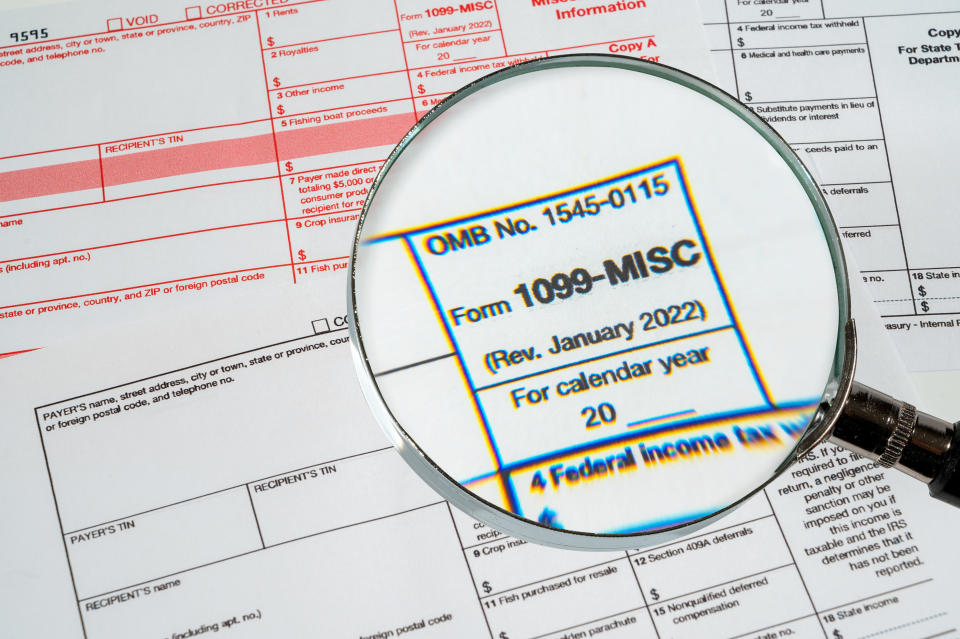
(More on this in a bit.)
6."I can't even begin to tell you how many companies I've sued for firing someone the day their workers compensation claim settles for no legitimate work reason, like that's not suspicious."
7."You also can't be retaliated against for reporting certain illegal discrimination, which is why you always want to make sure you do it in writing so that we can prove that you said it."

8.And finally, "You also can't be fired for using things like FMLA, [the Family and Medical Leave Act]."
In the comments, people are thanking her for sharing this vital information and sharing which laws they're seeing their own employers break.
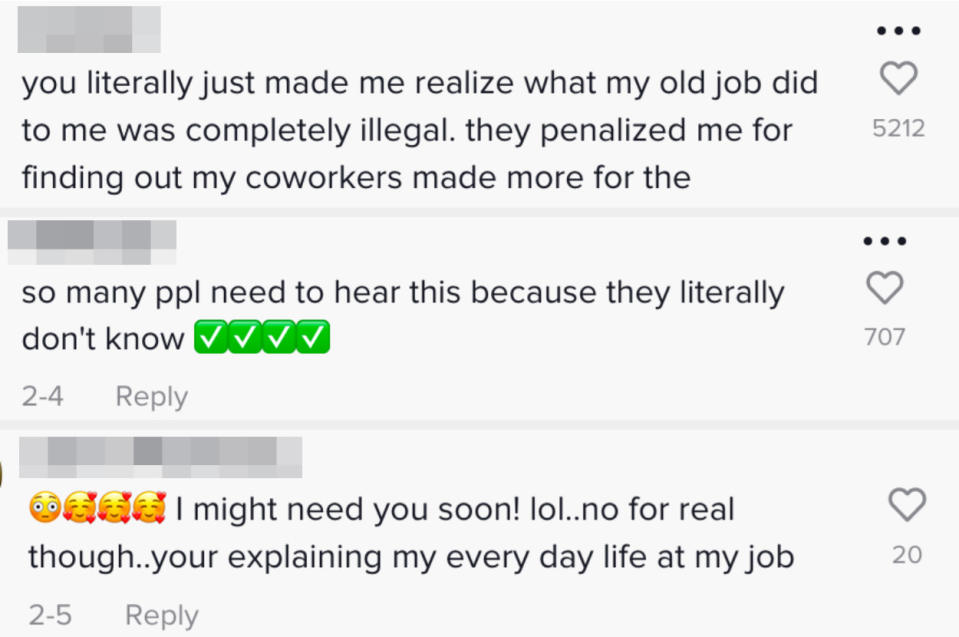
Sparks told BuzzFeed that she's been practicing employment law since she passed the bar in 2019, and also clerked in this area of the law during her studies. And she shared why she truly loves the work she does. "I am super passionate about employment law, partially because I've experienced a lot of these labor violations from a lot of different employers. And some of them were even lawyers! But I'm very passionate because when it happened to me, I didn't know what to do, and I didn't know what my rights were."
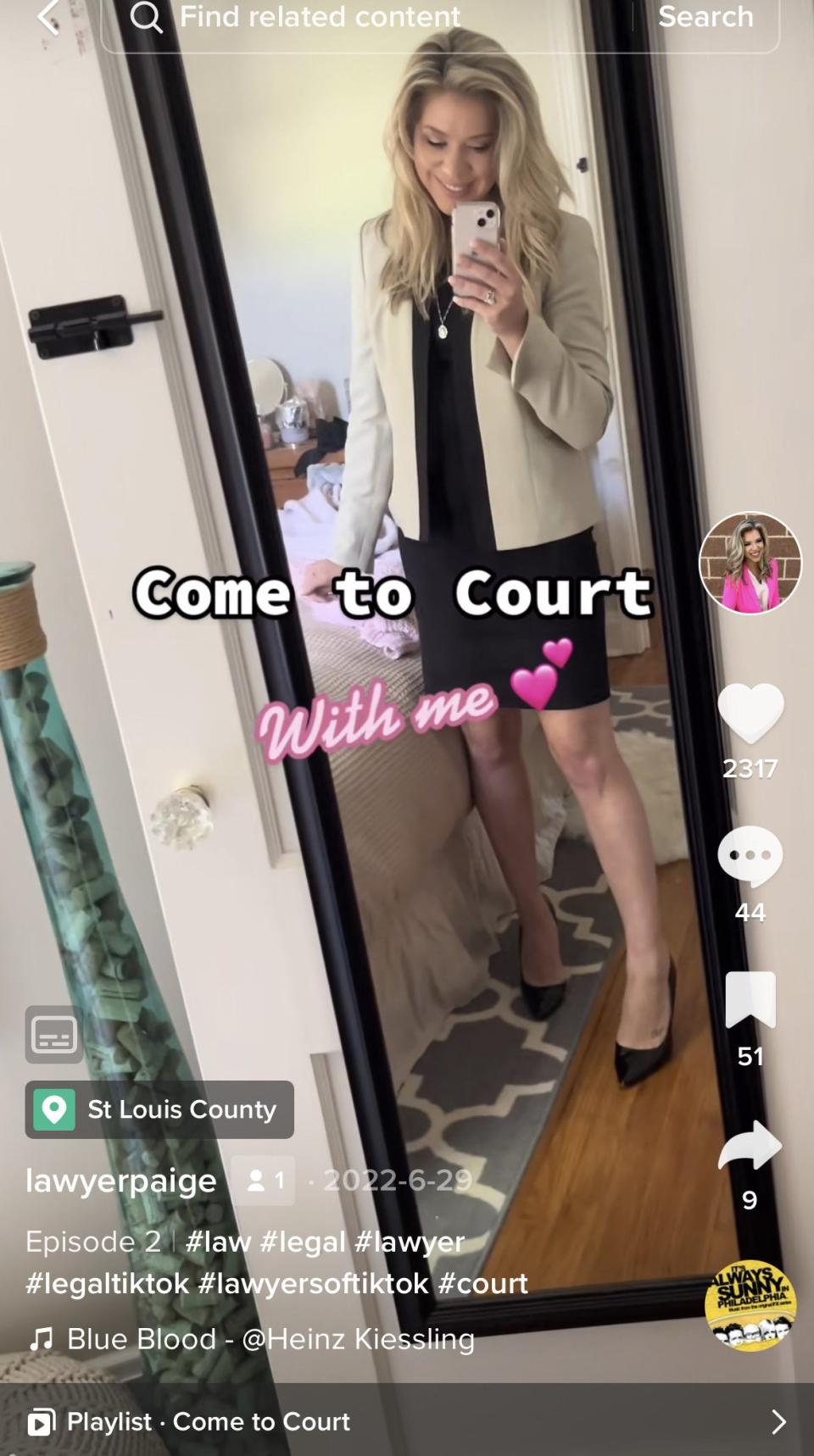
And she gave more information for anyone who's wondering if they should be eligible for overtime even though they're salaried. "Salaried people are not just automatically exempt from overtime. That's kind of a myth that goes around. There's a three-part test. There's a salary threshold, if you don't make X amount per week, then there's a duties test, what kind of duties you have to do. And then, there are professional exemptions, like for doctors or lawyers like me, we're not able to get overtime. So, if you don't fit into that three-part test, you may not be exempt from getting overtime with your salary. So, those individuals sometimes find out that they are entitled to that overtime where they're not just working this flat schedule and they're not exempt. When that happens, if we're right, we can go back two years for unpaid overtime."
Sparks also talked a bit about 1099 misclassification, which occurs when employers try to classify workers as freelancers when they're really treating them like employees. "Those are some of my favorite lawsuits to bring because they're pretty cut and dry when it's being abused. So, 1099 abuse is actually very common. A lot of people think that if they're given that form, they're forced to sign the 1099 versus a W2, so they're stuck. And that's not really how it works." If you're curious about your 1099 status, the Department of Labor has info here that can help you determine if you've been misclassified.
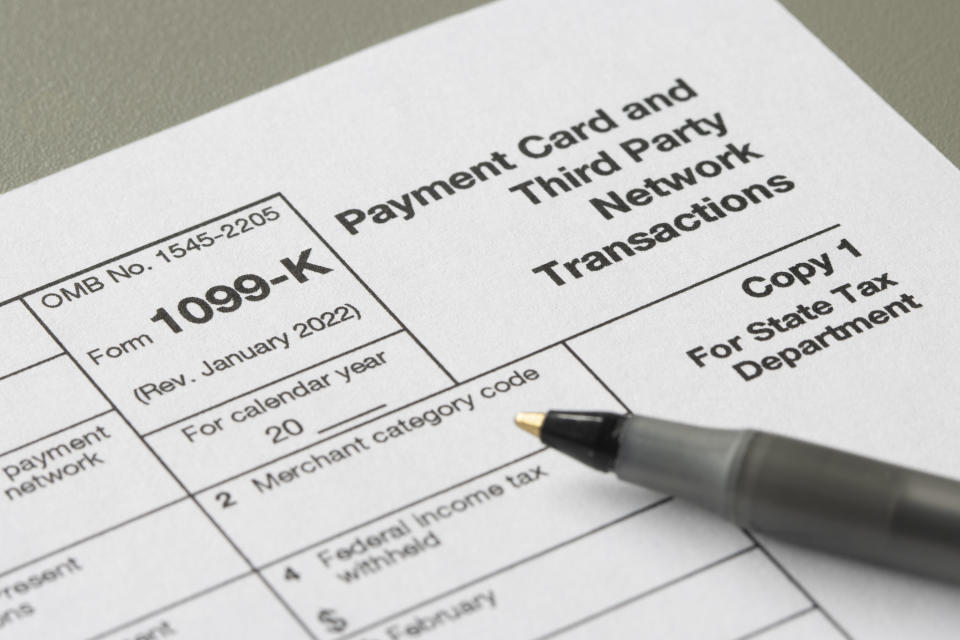
If you're reading this and thinking, uh-oh, my company is doing one (or more) of these things to me, Sparks says doing some extra research is a great first step. "I think the scariest thing for my followers is like, what do I do if that's happening to me? So, the first step is, there are many resources on the Department of Labor website. They are provided by the federal government. So, those are a good starting point."
And good news if you wind up needing a lawyer — Sparks says everyone can afford one. "Most employment lawyers work on contingency, which means the client pays nothing up front, and then, we get paid out of a percentage that we agree upon out of any potential recovery. So, it's great for employment law, because there are a variety of people who will need this help, and most of them can't afford a lawyer. So, in the event we don't recover anything, they don't owe anything."
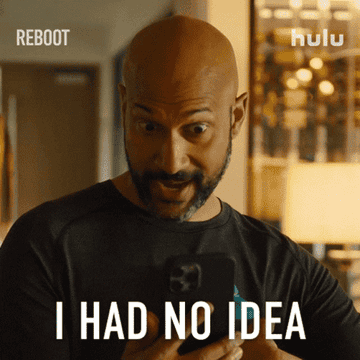
Hulu / Via giphy.com
She also shared some misconceptions that she sees people have about employment law. "A lot of people are afraid to take on bigger companies. That's a myth. We love taking on bigger companies because they usually have a legal department and we're not talking to, like, a small mom and pop owner who tells me to eff off. We don't care about company size as long as the law applies to them."
"Another thing I see is a lot of people in these situations are mentally abused, which isn't actionable in itself, but they're being treated this way for a reason — usually poor management or a bad boss. So, a lot of people get so beaten down, and then, they'll come to us and just be like, 'I don't know if I want to go forward. I'm scared of my boss.' Or, if they were already fired, it's kind of like a narcissistic, abusive relationship, like if you were dating but instead of your boss, and so, if we can get people just to trust like, 'Hey, you have rights, you're not fighting this alone anymore,' and transition into that mindset. That's hard for a lot of people to do, but if they can take that leap, if there are violations, your boss no longer gets to bully you, and they have to deal with your lawyer."


